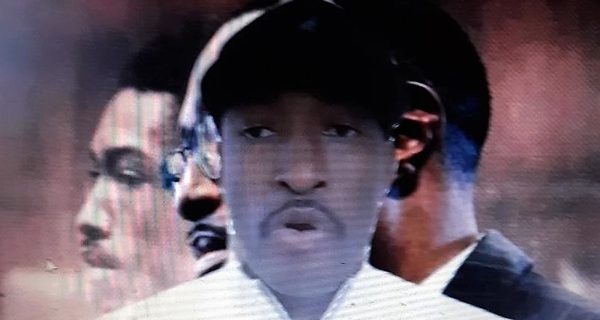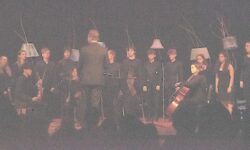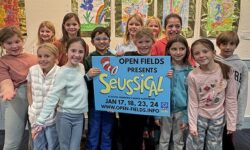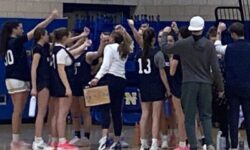Sean K. Ellis, the subject of Netflix’s “Trial 4” appeared to speak on the work he is doing to fight voter suppression and police brutality.
By James Kinneen
Hometown Weekly Reporter
With COVID-19 cases in Massachusetts showing very little signs of slowing down, like so many events this year, the Needham Diversity Initiative’s (NDI) Martin Luther King Day Observance moved to Zoom, which, not without a few hiccups, allowed the participation of a much larger group of people than could be housed in a function room.
The day began with a slideshow of MLK and the civil rights movement in pictures set to James Taylor’s “Shed a Little Light,” before Owen Woo introduced NDI board members Gretchen-Cook Andersen and Rebecca Young. They began with a back and forth reading of John Legend and Common’s “Glory,” from the MLK biopic “Selma” (which won “Best Original Song” at the 2015 Oscars). Young noted the loss of former NDI President David Summergrad, and that this was the first MLK Day without him. The statement immediately prompted many notes to be posted in the comment section about how great a guy he was and how much he is missed.
Noting Dr. King’s Atlanta upbringing and intellectual growth in Boston. Next, they played Guy Peartree’s “Reflections on the Life of MLK,” which essentially served as a history of the man being celebrated.
“We Shall Overcome” was played, with Brother Dennis Slaughter leading a group of people in Zoom boxes in a prerecorded performance. “Feel free to sing to yourself at home or wherever you are” was written in the comment section (which often served to provide helpful Zoom hints).
The "I Have a Dream" speech was then played, utilizing sign language for the hearing impaired. In a personal reflection period, Owen Woo explained that Needham residents and people with connections to the town had been asked how they were living MLK’s dream and sent in their responses. May Chin spoke of her work as the co-chair of her residence’s diversity committee, which uses educational programs and discussion groups to focus on treating others with respect regardless of race, ethnicity or color. Donna Bello spoke of working to expand her work in the racial justice initiative team at Christ Episcopal Church. The most interesting appearance, though, was that of former Needham Public Schools student Sean K. Ellis. Ellis is the subject of Netflix’s “Trial 4”, a documentary series about Ellis' quest to have his conviction for the murder of Boston Police Detective John Mulligan overturned (which it was, in 2015). Ellis spoke of King’s fighting for voting rights, and how he is involved in efforts against “voter suppression, and in some cases outright disenfranchisement of those who are incarcerated.”
Reflecting on the BLM movement and subsequent rallies, Aisha Tipnis (NHS class of 2019 and current Brown University sophomore) spoke of how her realization that the statement “Black lives matter” was controversial came after Beyonce’s “Formation” performance caused such a stir. Last summer she saw kids posting on social media about racial justice, and crowds on Highland Avenue supporting the BLM movement. She wondered what triggered such an outpouring of support for something that seemed controversial not long before it became accepted in mainstream culture. She argued people couldn’t relate to Beyonce’s emotions or experiences until it took a “series of particularly indefensible state sanctioned murders to elicit an emotional response from the majority of America.” She circled back to MLK by referencing his "Letter from a Birmingham Jail," and the idea that “injustice anywhere is a threat to justice everywhere,” while noting how excited to see the changes her generation (Generation Z, by her own admission) will bring about.
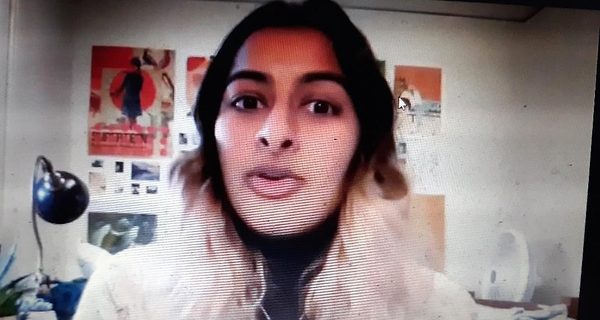
Fellow Gen Z-er Aidan Ward showed his video of the BLM rallies, largely shot via drone, before Dr. Nichole Argo spoke about “The Power of One: Reflections on the Legacy of Martin Luther King Jr. during a time of unrest in the US.” Argo studies extremism on social media as well as political violence, and talked largely about the riots at the Capitol. She talked about how the plans from groups to overrun the capitol were seen on social media, but dismissed as fantastical even by her. “The narratives we’re seeing on social media are long term” and not over, she noted. She claimed the “act of insurrection stems from a long history of white supremacism,” later referencing the success of a 1898 Wilmington North Carolina armed insurrection on the local level, and arguing that “the white supremacy behind Wednesday's insurrection will require tailored redress beyond just accountability or counterterrorism tools,” while calling for work to address our “deep history of racist terror and violence” that could include things like reparations. At the same time, she noted that while she believes the Capitol riot was an act of terrorism, she fears talking about it too much, as doing so could lead to counterterrorism solutions, expanded policing and surveillance that would likely hurt people of color.
She put Dr. King's famous quote on the screen, in which he laments that more than Klansmen, the great stumbling block in the stride toward freedom is "the white moderate more devoted to ‘order’ than to justice." She then noted that we are supporting a norm no matter what we do, before asking which norm we will support. She spoke of the businesses that have cut their political donations, like Marriott International, while also calling for the called for “patriotic empathy” and building cross-cutting relationships. Her call to remember the power of one led to a series of photos from BLM rallies set to U2’s “Pride,” which begins with the line: “One man comes in the name of love.”
Jesse Young-Paulson and Ray Winig shared 39 examples of Black excellence with a connection to the greater Boston area, in honor of MLK’s 39 years of life (and his Boston and BU connections). The last name on the list, which included people like Phyllis Wheatley, Frederick Douglass and Harriet Tubman, was event host (and NDI board member) Gretchen Cook-Anderson.
The ceremony ended with “Happy Birthday” by Stevie Wonder, which served as a nice reminder that MLK Day is celebrated on his birthday.
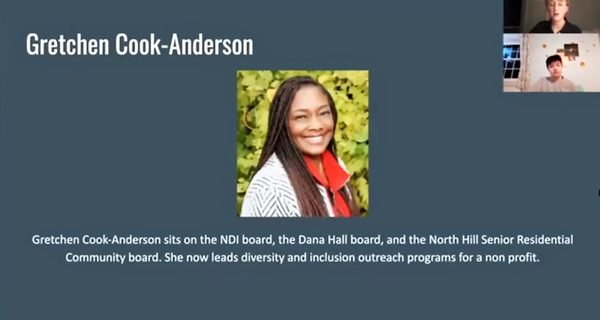
While a live ceremony may have been a more unifying experience, seeing how many attendees had young children on their laps served as a reminder that holding the event on Zoom allowed a far wider audience to take part. To that end, in the chat section, one comment stood out.
Keith Ford noted: “I have the pleasure of siting here with my children enjoying this celebration. As a black educator in this district, thank you.”




